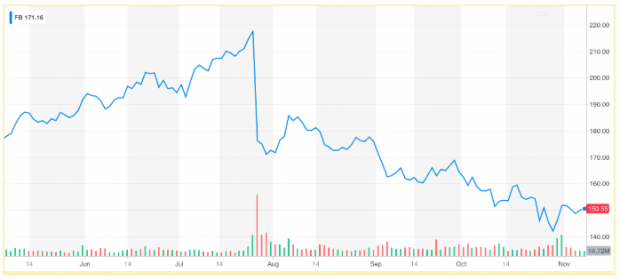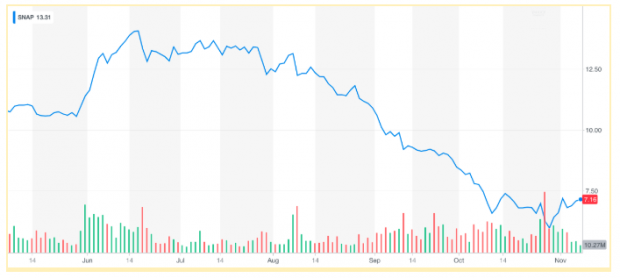The 8 Moments That Changed Social Media in 2018
The Cambridge Analytica scandal, Facebook’s algorithmic turbulence, API changes, and the arrival of GDPR—2018 brought big shifts to our industry.
As we enter the final days of 2018, I’d like to take a look back at the 8 moments that changed social media this year. I’ll also offer a few actionable tips and resources you can use to adapt to these new changes.
While I’m looking in the rearview mirror, our research team at Hootsuite has been busy researching the future. On December 5th, we launch our 2019 Social Trends report and webinar. You’ll learn the new forces shaping social media in 2019. Save your spot here.
Bonus: Get the step-by-step social media strategy guide with pro tips on how to grow your social media presence.
8 of the biggest social media moments in 2018
1. The great Facebook algorithmic update of 2018
The year began with a roar. On January 11th, the Prince of Palo Alto, Mark Zuckerberg, made an announcement on his personal Facebook page.
“We’ve gotten feedback from our community that public content—posts from businesses, brands and media—is crowding out the personal moments that lead us to connect more with each other,” Mr. Zuckerberg explained.
In a follow-up press release, Adam Mosseri, Head of News Feed, explained that Facebook’s algorithm would “prioritize posts from friends and family over public content.”
In particular, Facebook took specific aim at the following types of content:
- Public content, including videos and other posts from publishers or businesses
- “Engagement-bait” content designed to artificially spark conversations (or enrage) people
- News-focused content, especially publishers with little-known brands or niche topics (read: fake news and extremist politics).
While it was clear that content would have a harder time gaining organic traction, Facebook suggested new ways for brands to approach content distribution on Facebook.
For example, Facebook explicitly stated that “page posts that generate conversation between people will show higher in News Feed.” Live videos, for example, often create more discussion and interaction than passive content. According to internal data from Facebook, live videos on average get six times as many interactions as regular videos.
Facebook Groups—which now count 100 million members—have also been touted as new sources for brands to build customer communities and increase their organic reach.
2. Mark Zuckerberg heads to Congress
In 2018, data privacy took center stage. Soon after the Cambridge Analytica scandal—in which a political consultancy accessed 87 million Facebook profiles—Zuckerberg was called to Congress. He testified at two hearings in two days, with 10 hours of questioning from 91 lawmakers.
Zuckerberg’s appearance in Congress was political theatre. But marketers felt the effects of this political pressure. Facebook soon restricted access to their APIs, (affecting platforms like Hootsuite and our competitors), restricted ad targeting options, and reduced many of the granular ways marketers could target with features such as custom audiences.
3. The hammer of GDPR falls
If you’re like me, you’ve been leaking personal data all over the internet since 1999. Weak passwords, my indiscriminate clicking of ‘Which Friends Character Are You?’ Facebook quizzes—my privacy life is a hot mess!
While consumers tend to leak data online, The General Data Protection Regulation (or GDPR) is designed to protect them against unscrupulous companies.
As one lawyer eloquently put it, “The GDPR is an attempt to strengthen, harmonize, and modernize EU data protection law and enhance individual rights and freedoms, consistent with the European understanding of privacy as a fundamental human right.”
In the past, it was assumed that things like social security numbers, physical addresses, email addresses were personal. But GDPR expanded the scope of personal information to include things that marketers typically exploit such as IP addresses, behavioral data, location data, biometric data, financial information, and much more.
If you work at a large company, you likely had a team responsible for making sure your marketing programs are GDPR compliant.
If you work as a consultant or at a smaller company, do you really need to care about GDPR?
Yep. Especially if you are doing the following things in your marketing:
- Collecting emails including using pop-ups or lead ads on Facebook
- Using web analytics to track user behavior (The standard “we use cookies to improve your experience” pop-up is not enough to comply with GDPR regulation)
- Exporting or importing data with Facebook’s Custom Audiences
Complying with GDPR takes a bit of work and would be too much to explain in this blog post. This resource from Reforge, a growth marketing blog, is the most practical guide I’ve found. It also includes a fantastic explanation of what consent means in a GDPR world.
4. IGTV and Facebook Watch go global
 Source: Instagram
Source: Instagram
In 2014, Zuckerberg was widely quoted that the News Feed would be “mostly video” in five years time. But in 2018, this story took a turn. Public content—which is mostly video—was targeted by the algorithm update. And Facebook is looking for way to capture those valuable video views beyond the crowded News Feed.
On June 20th, Instagram launched IGTV, a standalone app for longer video. Facebook Watch—Facebook’s video platform that features made-for-social TV shows and longer content—was also rolled out globally. The company has not shared much data on the user adoption of these new video platforms, so this will be a story to follow in 2019.
Features that will be of interest to video creators are Facebook’s Ad Breaks program, giving publishers new ways to monetize. IGTV is still new. But there’s lots of opportunity for video publishers—especially if you offer niche content—as video discovery and searching is on the rise in Instagram.
5. Instagram shakes up the ecommerce world with shoppable media
On September 17th, Instagram announced the arrival of shoppable media. This is a giant leap forward for social commerce, with Instagram reporting that 90 million accounts are already using tags in shopping posts on Instagram every month.
Now, your business can use shoppable posts and shoppable stories. The days of asking customers to shop your “link in bio” are over, creating a smoother and more direct shopping experience within the app.
There are also rumours that Instagram is building a standalone shopping app called “IG Shopping.” Whether or not that rumour is true, they did launch a Shopping channel in Explore, helping more people discover new products and creating a specific place within the network to do so.
Instagram’s push into ecommerce creates a giant new revenue source for the company, as well as new opportunities for smaller retail merchants to reach passionate customers around the world.
Four in five Instagram users follow at least one business. And Facebook reports that one in three daily active Instagrammers surveyed in BR, ID, UK and the US say they have become more interested in a brand or product after seeing it on Instagram Stories. You can learn some best practices for creating effective Story advertising content here.
6. Tech stocks stumble
On July 26th, Facebook’s stock tumbled into a sell-off, spiraling from $215 per share to $176 per share. The drop was caused by Facebook’s warning that revenue growth would slow in the coming years, as costs (including increased spending on security and content moderation measures) increased.

Likewise, Snapchat had a tumultuous year. Snapchat has struggled with user growth beyond their core demographic of 13- to 34-year-olds. According to data from Statista, Snapchat had 186 million daily active users on average, down from 191 million in the first three months of 2018.

Snapchat’s troubles show how hard it is for a new platform to compete against the established giants. We’re seeing tools and networks consolidate as the industry matures.
For social media professionals, I believe this consolidation offers an incredible opportunity. It’s a safe bet to specialize your skills in the major networks and build more focused marketing strategies. Professionals with specific skills—such as master Facebook ad buyers, experts in Instagram ecommerce features, or talented video creators who understand the social viewing experience—will be highly valued in the next era of social, rather than the ‘jack-of-all-trades’ social media managers that have typified the profession in previous years.
7. TikTok tops the video charts
WeChat, Sina Weibo, and Alibaba’s Youku have struggled to gain ground outside of China. But recently, the social video app TikTok charged into hypergrowth, amassing more than half a billion users with around 40 percent of them outside China across 150 countries and regions.
CNBC reports that TikTok was the world’s most downloaded iOS app during the first half of 2018, beating app downloads of Facebook, YouTube, and Instagram.
Adding fuel to the fire, TikTok’s parent company ByteDance acquired the popular teen video app Musical.ly and migrated their 200 million users into TikTok. The mobile app analytics firm Sensor Tower found that in the third quarter of 2018, TikTok increased their downloads by 5X year-over-year and now rank among the top three social video apps in the world (alongside Instagram and Vigo, which is also owned by ByteDance).
ByteDance is apparently now looking to secure new investment from SoftBank, with a valuation of $75 billion. This would rank ByteDance as one of the most valuable startups in the world alongside Uber.
We’re starting to see brands use TikTok to increase brand awareness or launch new products. The retail brand Guess launched the first ever branded content campaign in September. Their campaign targeted millennials with their #InMyDenim hashtag challenge. “Trends often originate on TikTok and GUESS is known for being ahead of the trends,” explained Matty Lin, Director of Brand Partnerships at TikTok US.
Burger King also recently partnered with TikTok. They created a “lick your elbow” challenge to promote a new burger, asking users to post funny videos of themselves.
If you’re trying to reach younger demographics (especially with B2C products), then search for rising video stars on TiKTok to recruit into your influencer programs. While there is opportunity for brands to be seen as innovative by using TikTok, we’ve seen similar networks quickly rise and fall before. In November, Facebook also quietly launched a clone video app called Lasso in the US market. In the past, Facebook’s aggressive copy-cat strategies have crushed competitors before, so we’ll see how this video battle plays out in 2019.
8. Stories grow 15X faster than feeds
From the rise of messaging (WhatsApp and Facebook have grown over 30 percent year-over-year) to the explosion of story-based sharing, consumers are moving towards one-to-one personal communication.
At Facebook’s annual developer conference in May, chief product officer Chris Cox revealed that “the Stories format is on a path to surpass feeds as the primary way people share things with their friends sometime next year.” According to Facebook’s internal data, stories are growing 15 times faster than feeds.
Stories are the format of the future. They change how we share information, how we communicate, and create new rules for the types of advertising that users will permit in these private spaces. Brands that quickly learn these new rules—both for organic and paid content formats—will have an edge in the coming year.
So what should you do to prepare?
We’ll be discussing these shifts—as well as outlining other key forces shaping the social landscape–in our annual Social Trends webinar and global report.
In this data-packed webinar, you’ll hear our 2019 predictions, gain new insights from our survey of 3,255+ of social media professionals and leave with cutting-edge best practices from the world’s brightest social brands.
The post The 8 Moments That Changed Social Media in 2018 appeared first on Hootsuite Social Media Management.
Contributer : Hootsuite Social Media Management https://ift.tt/2TSxtO7
 Reviewed by mimisabreena
on
Thursday, November 29, 2018
Rating:
Reviewed by mimisabreena
on
Thursday, November 29, 2018
Rating:
















No comments:
Post a Comment